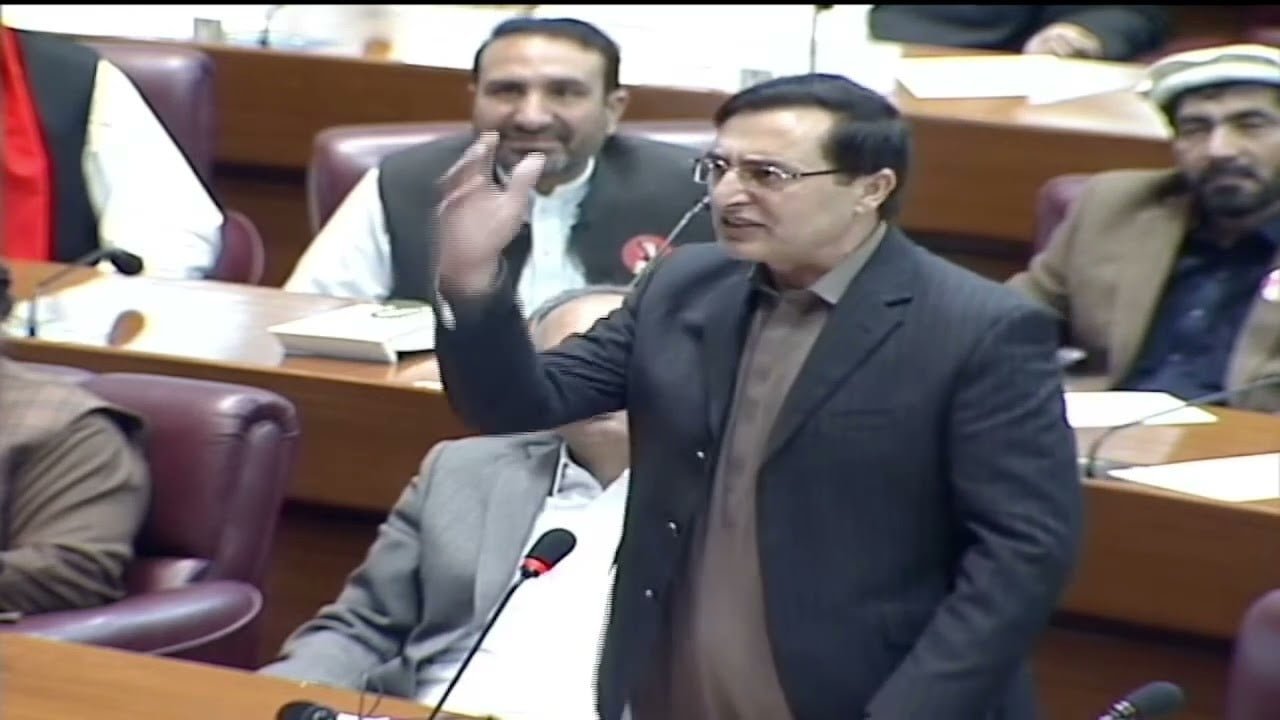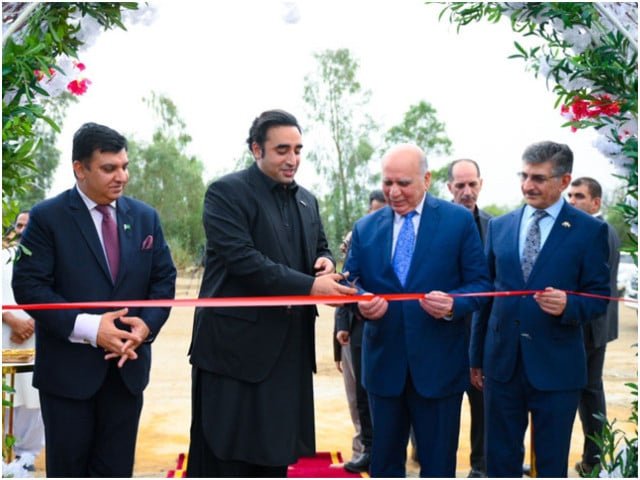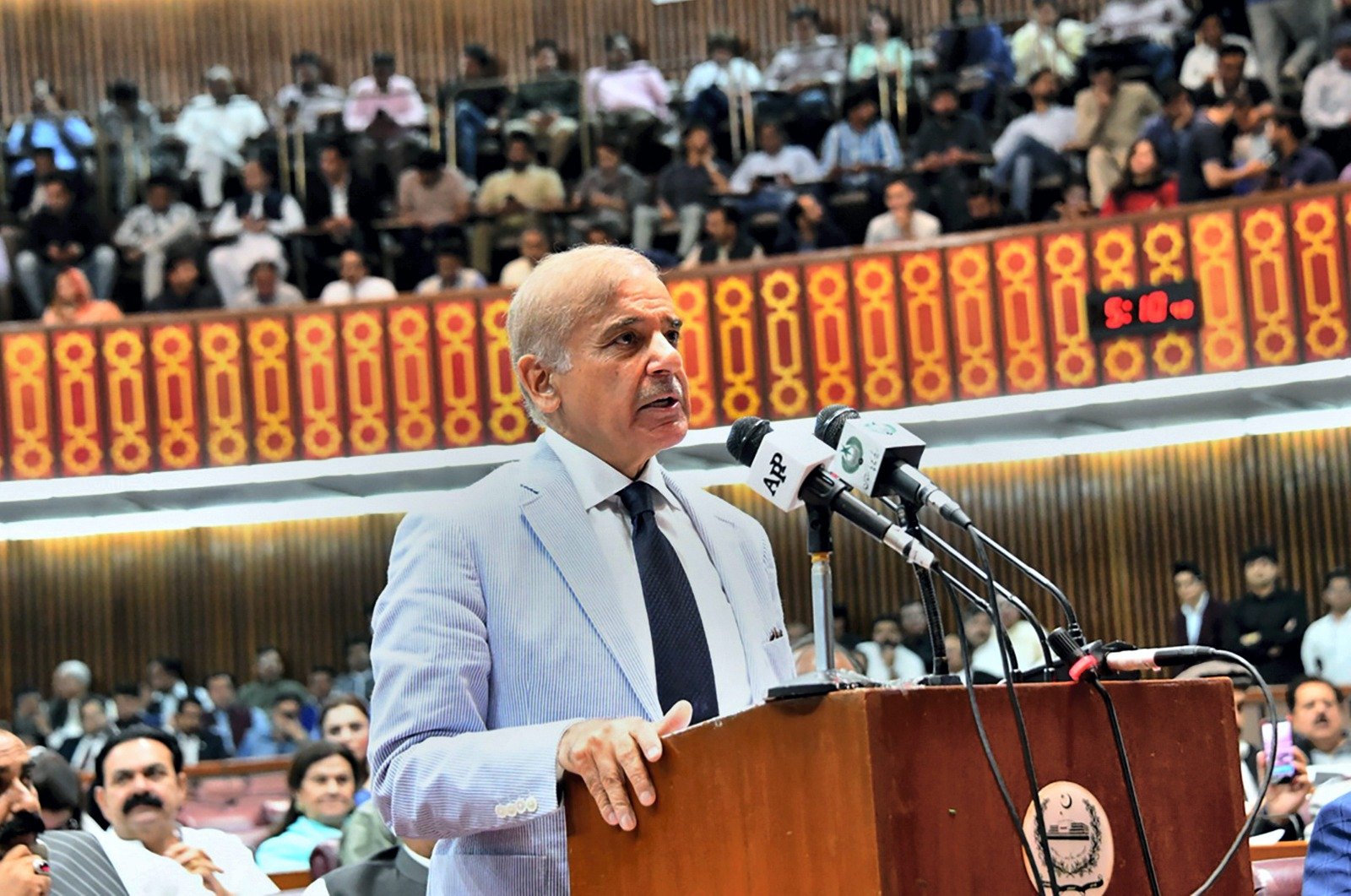PTI to Challenge Election Act Amendment Law in Supreme Court

Opposition Leader Barrister Gohar Criticizes Government in National Assembly
The Pakistan Tehreek-e-Insaf (PTI) has announced its decision to challenge the recently passed Election Act amendment law in the Supreme Court, marking the latest chapter in the ongoing political turmoil between the opposition and the ruling coalition.
Speaking on the floor of the National Assembly, PTI’s chairman, Barrister Gohar, launched a scathing attack on the government, sarcastically suggesting that Prime Minister Shehbaz Sharif should seek advice from Bangladesh’s Sheikh Hasina on how to flee the country.
“Shehbaz Sharif should consult with Sheikh Hasina about the modus operandi and passage of fleeing from the country,” the PTI leader remarked, drawing parallels to the recent political upheaval in Bangladesh.
“Did you see large crowds of people yesterday? It will teach a lesson to the government; you will face the same fate as Hasina Wajid,” Barrister Gohar added, referring to the massive protests that have galvanized public support against the current administration.
PTI’s Ideology Spreads Among the People
Barrister Gohar further emphasized the resilience of PTI’s ideology, stating, “If you won’t give due place to a political party, the space will be filled by someone else.” He highlighted the growing influence of the PTI founder’s vision and its widespread appeal among the Pakistani populace.
The fiery rhetoric from the PTI chairman comes amidst heightened tensions over legislative changes that could significantly impact the political landscape in Pakistan.
Controversial Amendments to the Elections Act 2017
The controversy erupted following the introduction of a bill by Pakistan Muslim League-Nawaz (PML-N) lawmaker Bilal Azhar Kiyani in the National Assembly. The proposed amendments to the Elections Act 2017 aim to restrict lawmakers from changing their party affiliation at a later stage, a move that has been met with fierce opposition.
During the legislative session, opposition members protested against the passage of the bill, tearing copies of the agenda in a display of defiance. The legislation, they argue, seeks to undermine the democratic process and stifle political dissent.
Supreme Court’s Recent Ruling and Political Ramifications
The passage of the bill comes on the heels of a significant Supreme Court ruling in favor of PTI. A 13-member bench of the top court, led by Chief Justice Qazi Faez Isa, ruled that PTI is eligible for the allocation of reserved seats, a decision that dealt a major blow to Prime Minister Shehbaz Sharif’s ruling coalition.
Justice Mansoor Ali Shah announced the 8-5 split verdict, overturning the Peshawar High Court’s previous decision, which had supported the Election Commission of Pakistan’s move to deny the reserved seats to the PTI. This ruling has further complicated the political scenario, intensifying the power struggle between PTI and the government.
However, the verdict was not unanimous, with Chief Justice Qazi Faez Isa, along with Justices Jamal Mandokhail, Naeem Afghan, Yahya Afridi, and Ameenuddin Khan opposing the majority decision. The dissenting judges voiced concerns over the implications of the ruling and its impact on the country’s democratic framework.
The PTI’s decision to challenge the Election Act amendment law signifies a pivotal moment in Pakistan’s political landscape. As the opposition ramps up its criticism of the government, the coming days are likely to see intensified political maneuvering and potential legal battles. The unfolding drama underscores the fragility of the nation’s democracy and the critical need for dialogue and reconciliation among political stakeholders.
The PTI’s commitment to contesting the legislation highlights its determination to safeguard its political interests and ensure a fair electoral process. With tensions running high, the nation’s political future hangs in the balance, awaiting the Supreme Court’s verdict on the contentious amendments.










